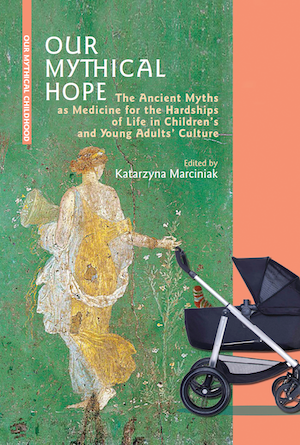All Is (Not) Lost
All Is (Not) Lost
Myth in the Shadow of the Holocaust in "Bezsenność Jutki" [Jutka’s Insomnia] by Dorota Combrzyńska-Nogala
Author(s): Krzysztof Rybak
Subject(s): Pre-WW I & WW I (1900 -1919), Interwar Period (1920 - 1939), WW II and following years (1940 - 1949), Post-War period (1950 - 1989), Transformation Period (1990 - 2010)
Published by: Wydawnictwa Uniwersytetu Warszawskiego
Keywords: Holocaust; children’s literature; Polish literature; Łódź ghetto; Theseus; Minotaur; Ariadne; Daedalus
Summary/Abstract: The article is a case study of "Bezsenność Jutki" [Jutka’s Insomnia] by the Polish author Dorota Comrzyńska-Nogala (2012). The eponymous character is imprisoned in the Łódź ghetto, where the only way to forget about the horror of the Holocaust is by listening to her grandfather’s bedtime stories, including the Cretan myth about Daedalus, the Minotaur, Theseus, and Ariadne. Drawing on bibliotherapy, I argue that these stories serve as therapeutic tools for Jutka and give her hope for a better future. Simultaneously, "Bezsenność Jutki" may be seen as a book granting the young readers hope, despite representing the Holocaust and atrocities of WWII.
Book: Our Mythical Hope
- Page Range: 629-644
- Page Count: 16
- Publication Year: 2021
- Language: English
- Content File-PDF

